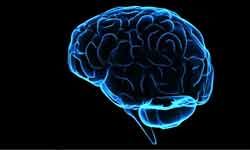It started out as an ordinary day for Saul back in A.D. 36. He wanted to murder disciples of a man who claimed to be the Messiah, and he was on his way to Damascus to do so. Then, on the way to Damascus, a light flashed all around Saul. He fell to the ground and heard a voice that claimed to be Jesus Christ. The voice told him to continue to the town, a task likely made no easier by the blindness Saul experienced when he got up. Saul remained blind for three days, until a disciple named Ananias laid hands upon him. Saul's sight was restored, and he immediately became baptized. After his experience, Saul became a powerful preacher for Jesus; today, he's better known as St. Paul.
Paul's story is interesting not just to biblical scholars, but to neuro-
Advertisement
scientists as well. Some scientists claim that the account of this conversion, found in the book of Acts, contains enough evidence to diagnose Paul with temporal lobe epilepsy. The flash of light, the voices and the fall to the ground are the evidence of a seizure, according to these neuroscientists, with the blindness a result of the postictal state that follows a seizure [source: Brorson, Brewer]. While most doctors agree that it's impossible to diagnose epilepsy definitively in someone who lived so long ago, Paul would join some other religious figures reputed to have brain disorders, including Moses and St. Teresa of Avila [sources: BBC, Begley].
The link between epilepsy and the Lord doesn't end with that list, though. In one study, researchers examined how certain words affected those with epilepsy compared to those without. The words were divided into three groups: neutral words, like "table," erotic words, such as "sex," and religious words, such as "God." In those without epilepsy, erotic words produced the biggest change in body chemistry, but in people with epilepsy, religious words created the biggest emotional effect. Sexual words had a much lower response [source: BBC]. Like the story of Paul, this study seemed to suggest that the temporal lobe has something to do with religious feelings.
These examples represent the intersection of science and religion, a field currently known as neurotheology. The goal of neurotheology is to determine what's happening in the brain during a religious experience. Obviously, the field can be a bit controversial; those with deeply spiritual beliefs about the connection between a person and his or her maker aren't thrilled about reducing religion to something happening in the brain. But the work of the scientists does seem to show that there's some connection with our gray matters and our pray matters. So, is nirvana all in our noggin? Are we simply responding to brain firings when we drag ourselves out of bed on Sunday morning? Read on to find out what God might be doing to your brain.
Advertisement



